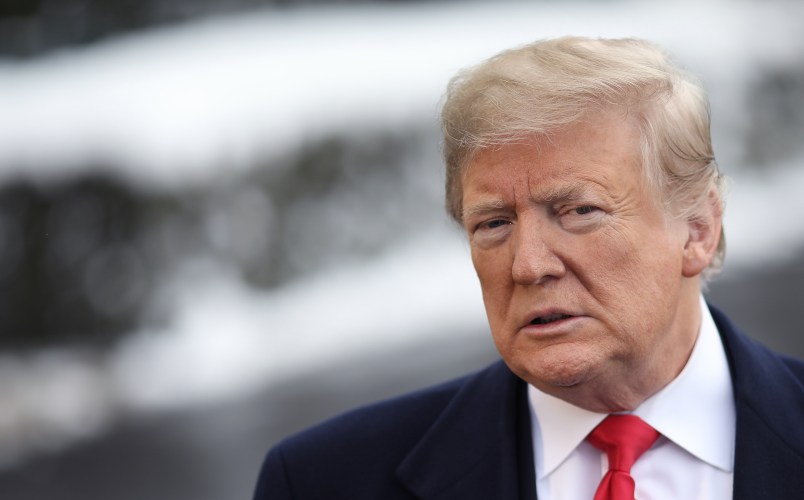American voters blame President Trump and congressional Republicans for the ongoing partial government shutdown by wide margins, according to a new poll from Quinnipiac University.
The survey found that voters oppose shutting down the government to force funding for the wall by 63 percent to 32 percent, an almost two-to-one margin. And 56 percent of voters blame Trump and the GOP for the ongoing shutdown, while just 36 percent blame Democrats. Americans oppose Trump’s threat to declare a national emergency on the southern border 65 percent to 32 percent.
Quinnipiac is the latest pollster to find that solid majorities of Americans see Trump and the GOP as the reason for the shutdown, which reached its 24th day on Monday — the longest in U.S. history.
Americans also continue to oppose additional wall construction along the U.S.-Mexico border by a double-digit margin, with 55 percent opposing to 43 percent supporting it. Those numbers are virtually unchanged from Quinnipiac’s last survey in mid-December, shortly before the shutdown, though they’re a bit closer than earlier polls on approval of the wall.
But voters say by double-digit margins that building the wall isn’t a good use of taxpayer dollars, that it won’t make the U.S. safer, that it isn’t necessary to protect the border and that it’s inconsistent with American values.
And Democrats actually lead Trump on the question of who voters trust more on border security by 49 percent to 44 percent, a number that stands in contrast to the GOP’s long-held lead on questions of border security.
Trump has shown no signs that he’s willing to back off his demand for wall funding to reopen the government, and Democrats are steadfast in their refusal to consider any wall funds as a part of a government funding deal. Both sides are entirely dug in, and there’s no clear end in sight for the shutdown.
That’s making congressional Republicans nervous, as the longer the shutdown goes the more economic damage and general havoc it will wreak on the U.S.
Quinnipiac didn’t release polling numbers on Trump’s approval rating, but other recent pollsters have found an uptick in the number of people who disapprove of the job he’s doing in office, even as his approval rating has held relatively steady in the low 40s. It’s unclear whether that damage will last, as past shutdowns haven’t left much of a lasting mark on voters’ impressions. Voters’ attention spans have also been especially short in the Trump era given the huge amount of big stories that whip through the headlines. But this ongoing fight appears to be hurting Trump’s standing heading into the 2020 elections — and the reputations of other Republicans’ as well.






